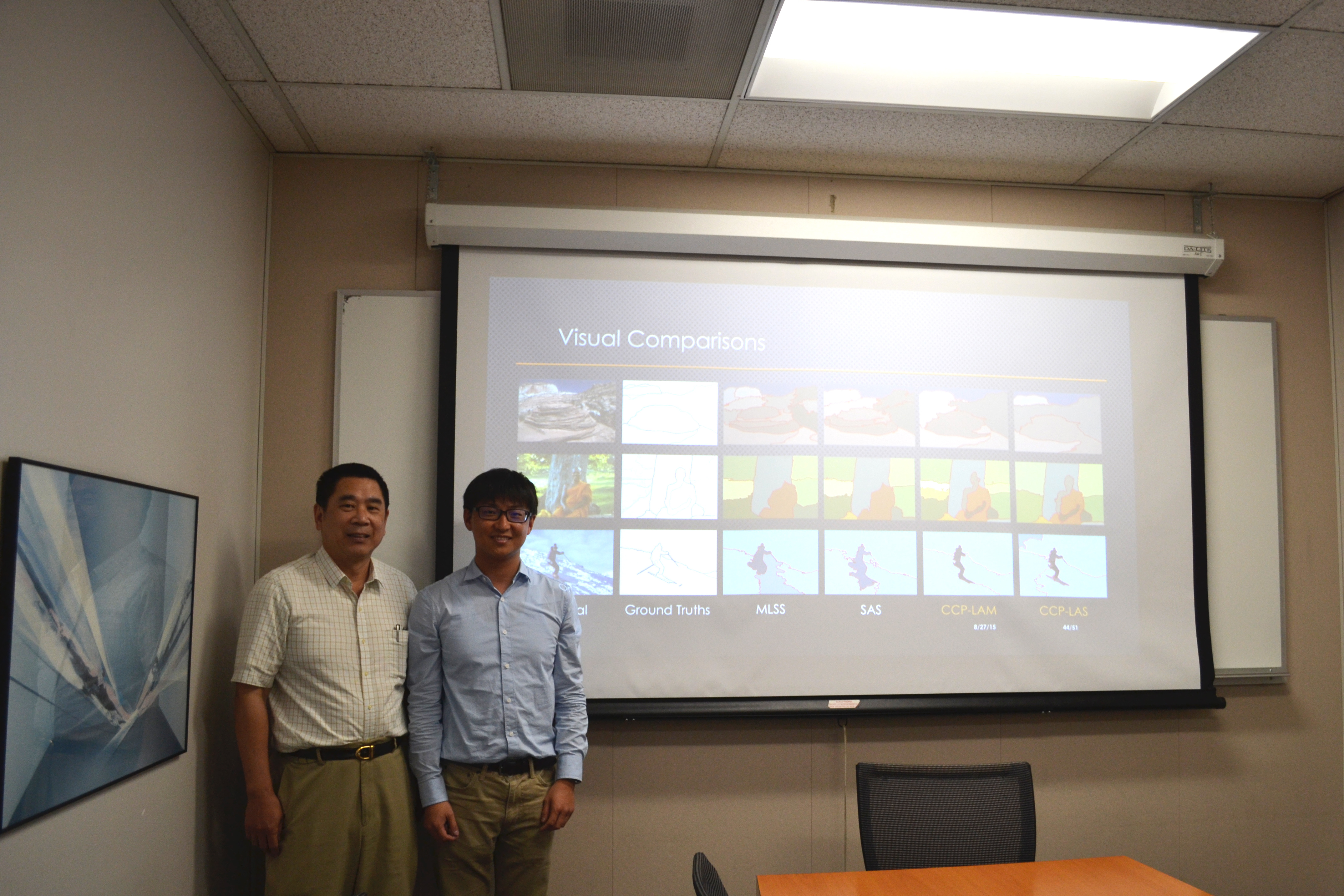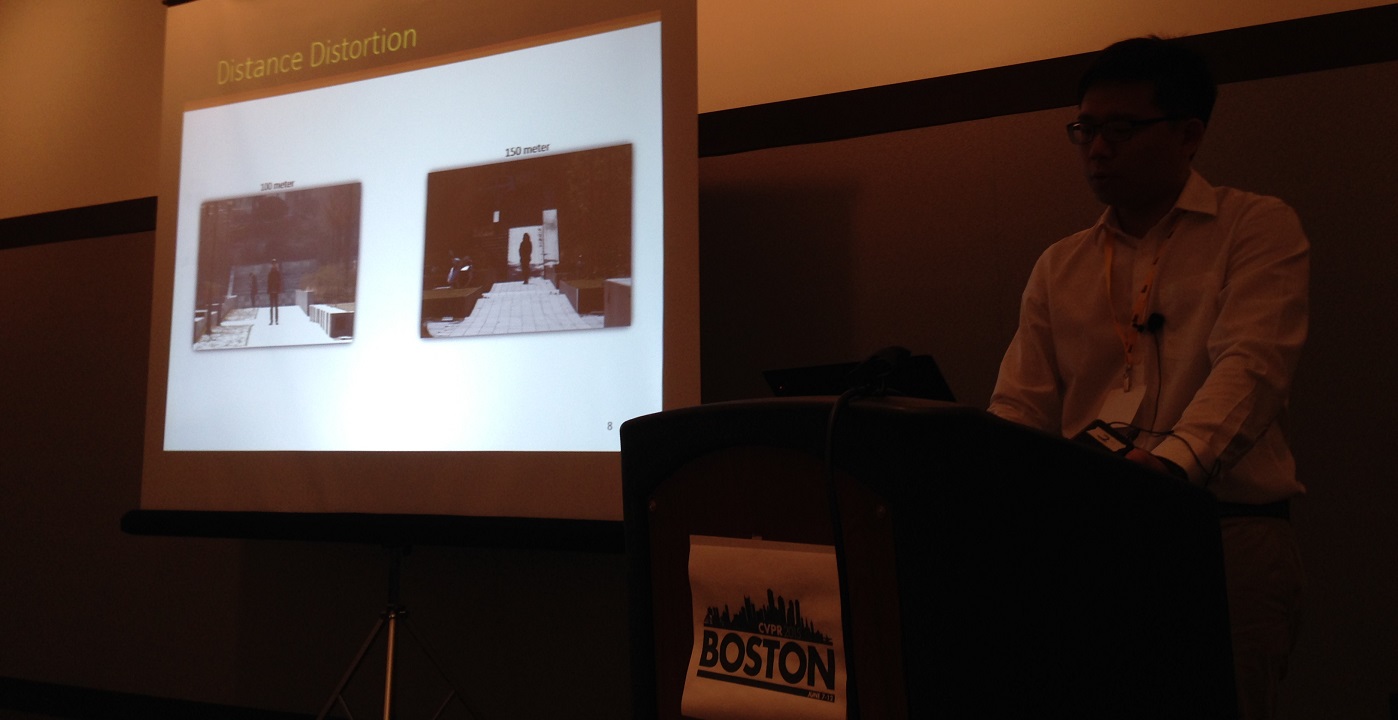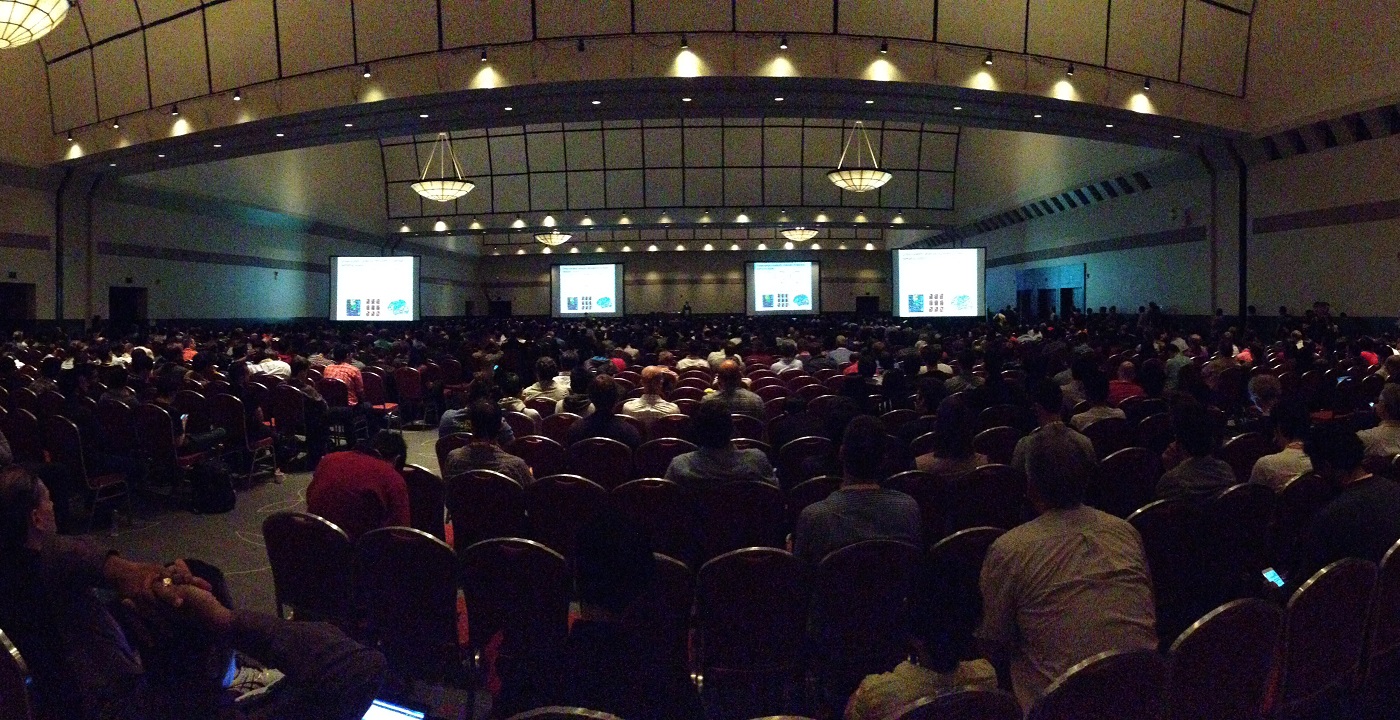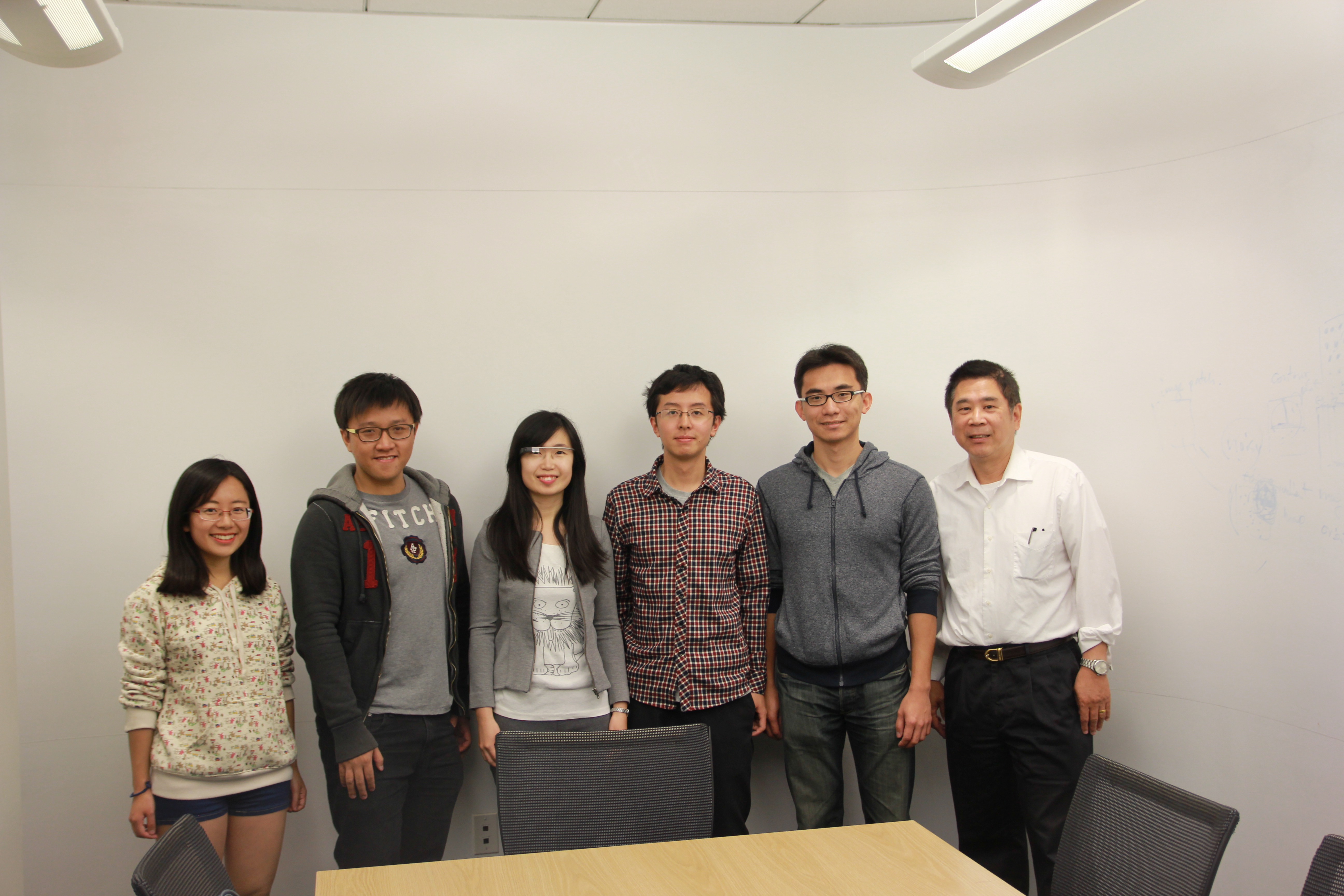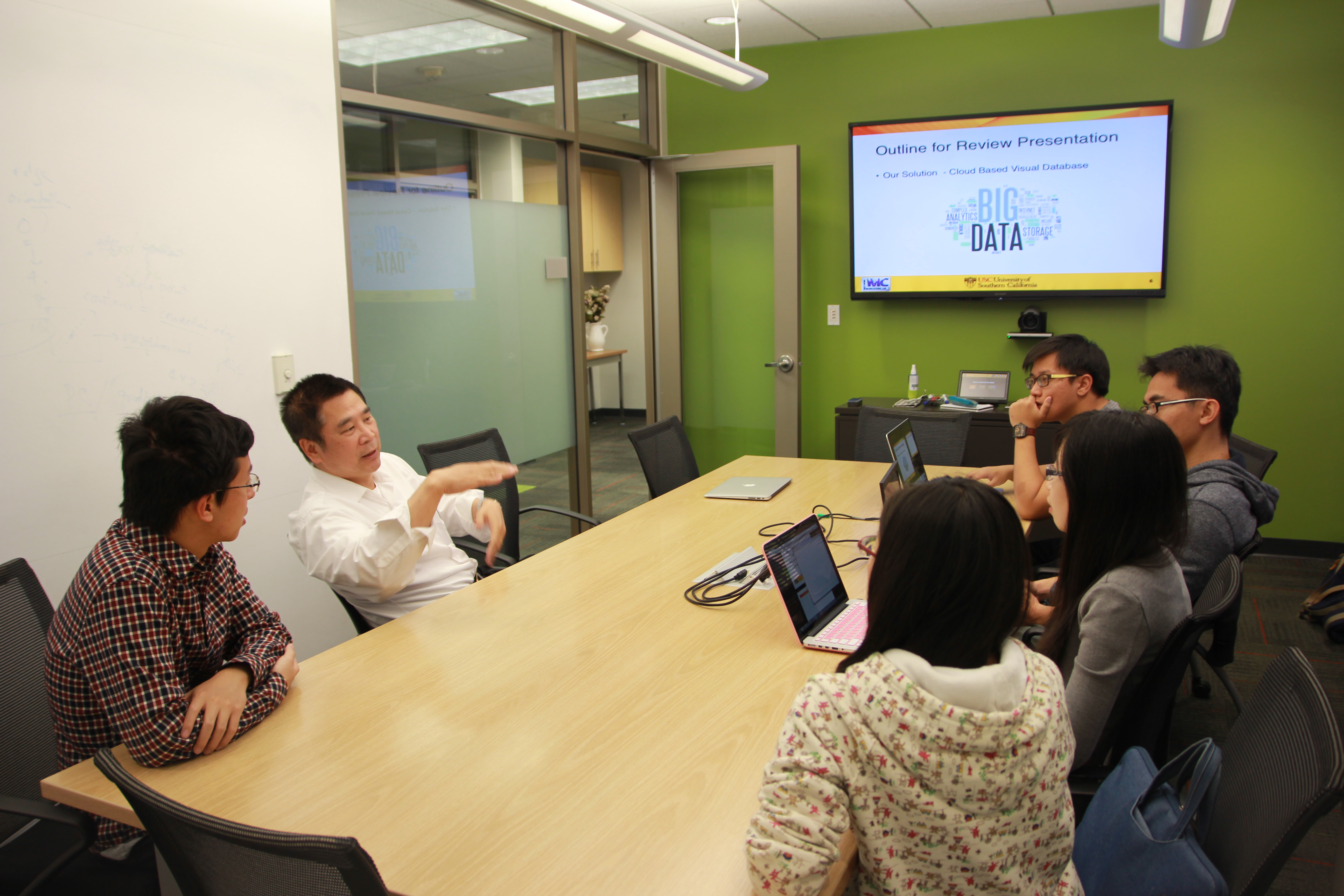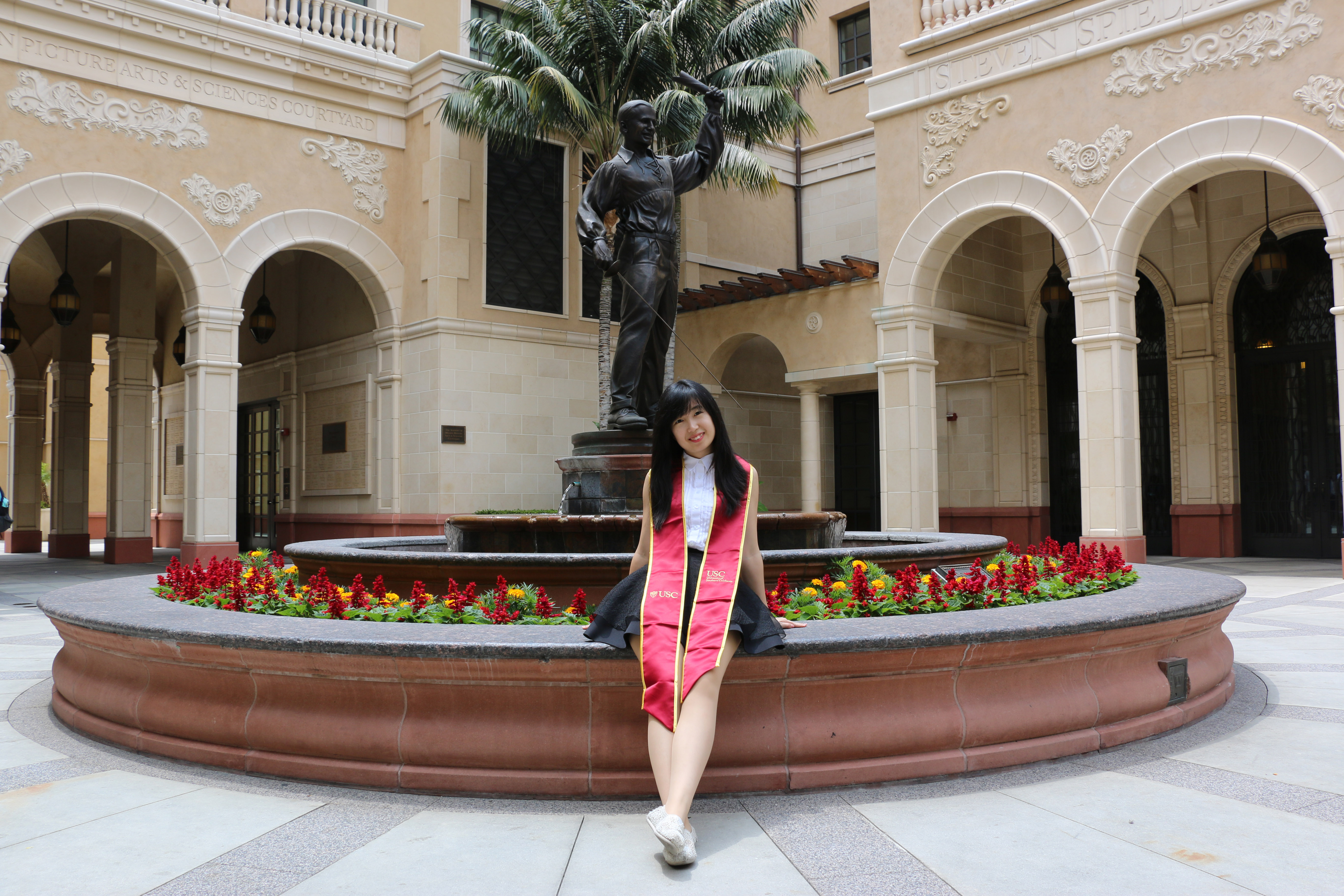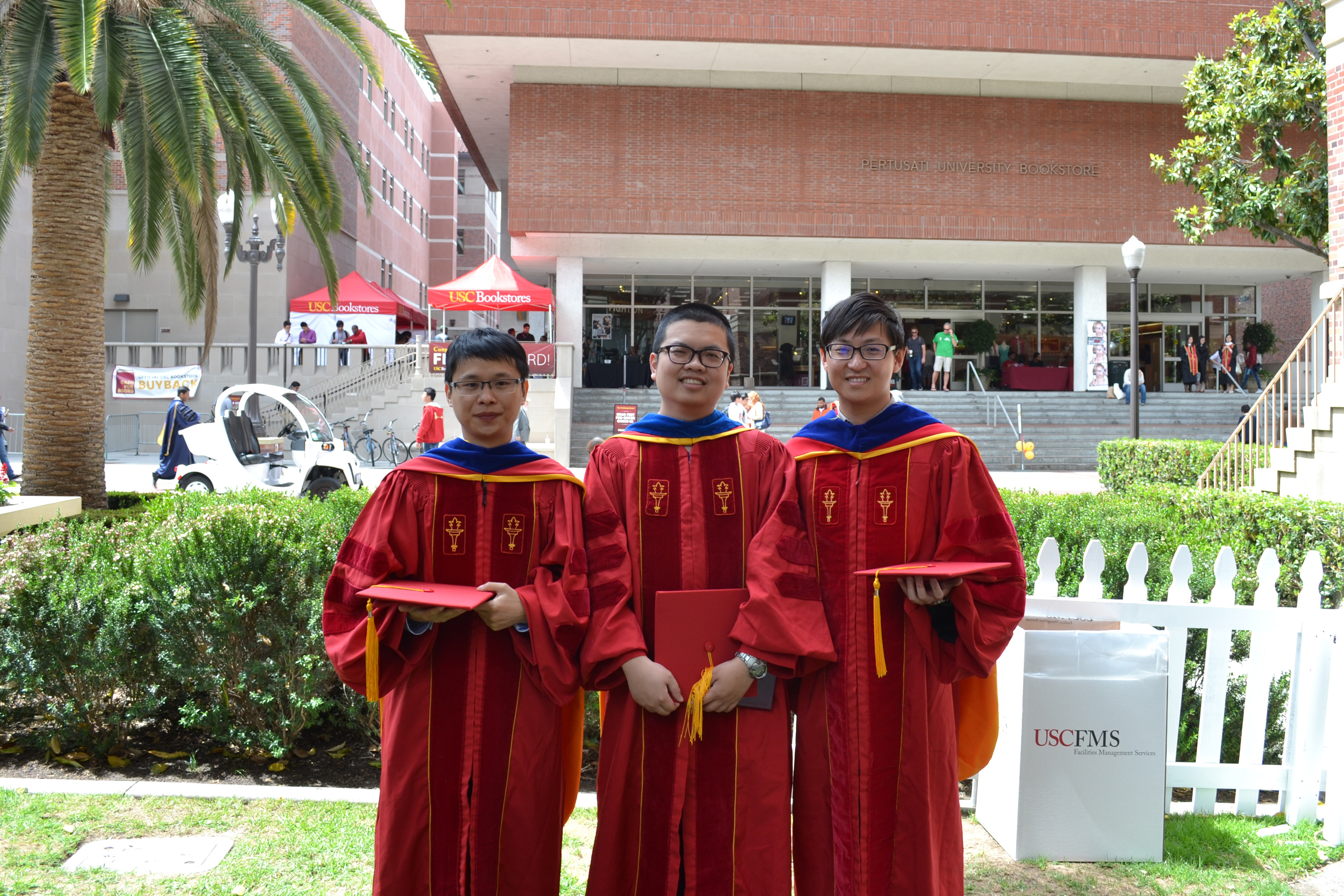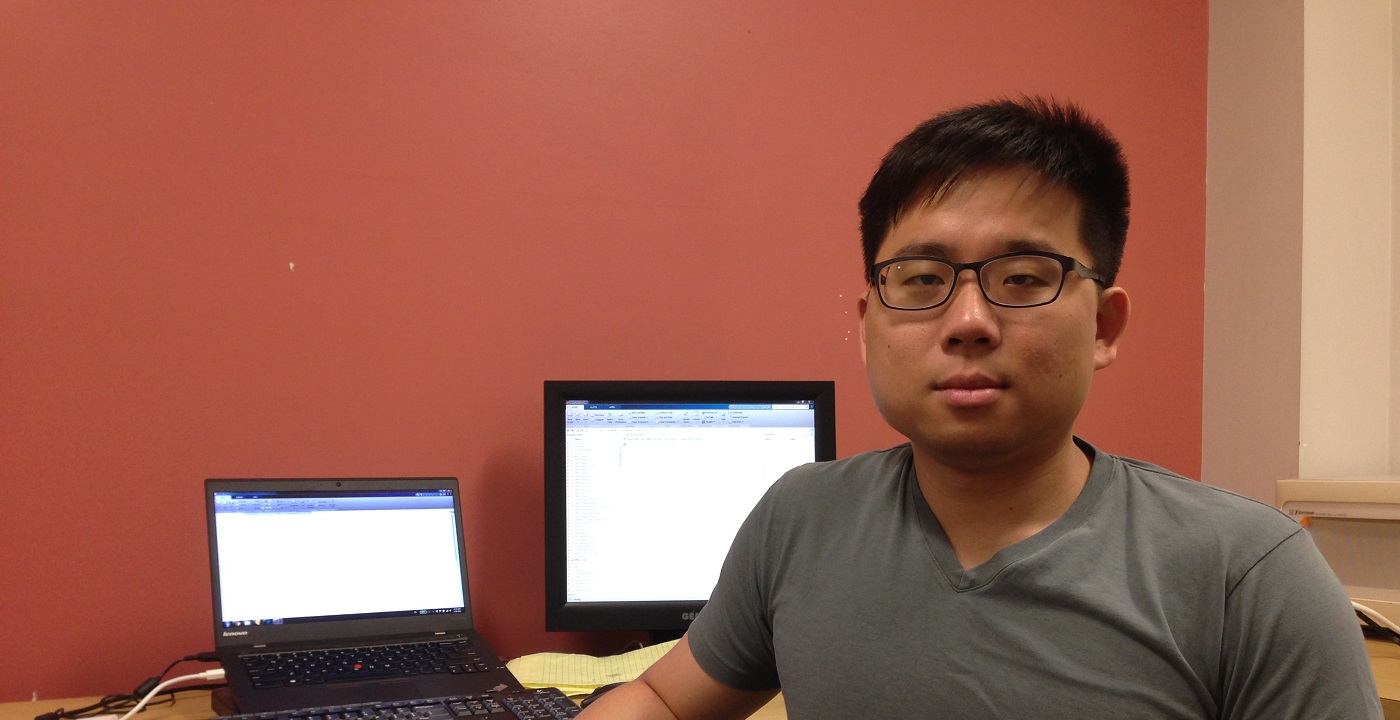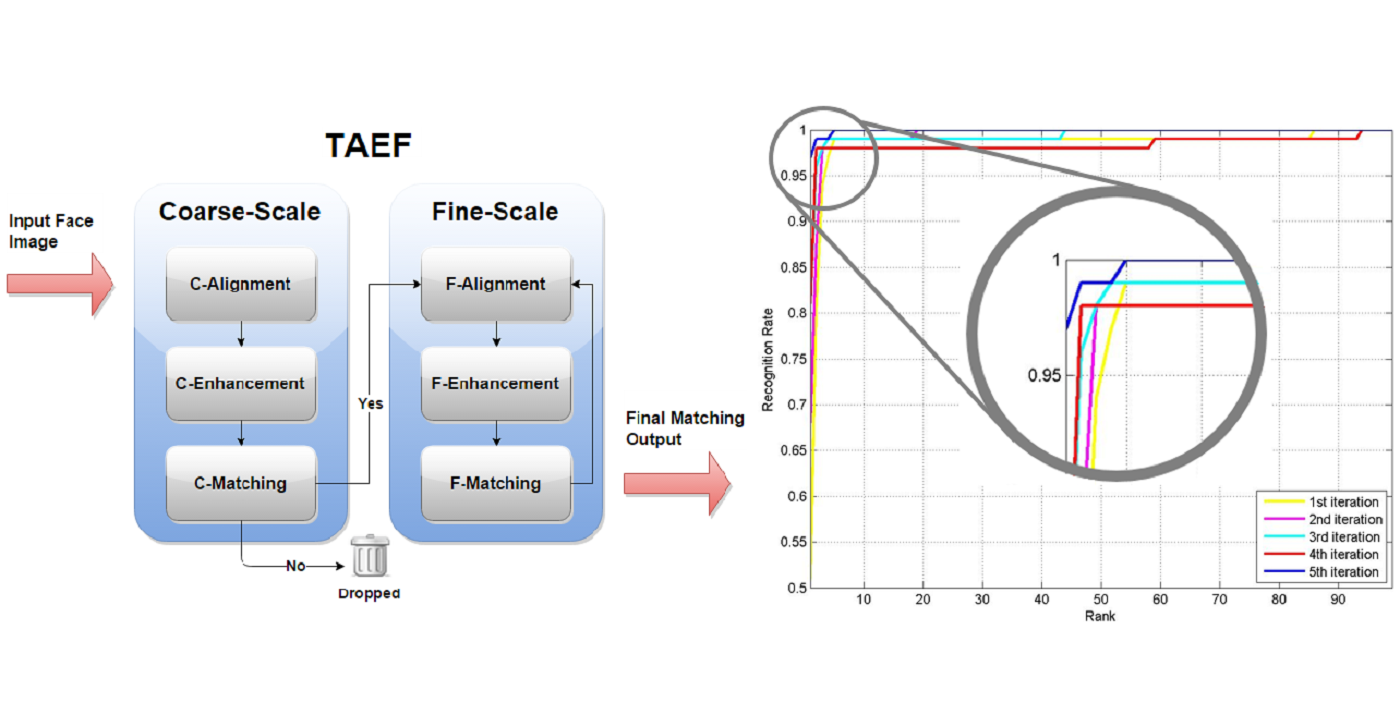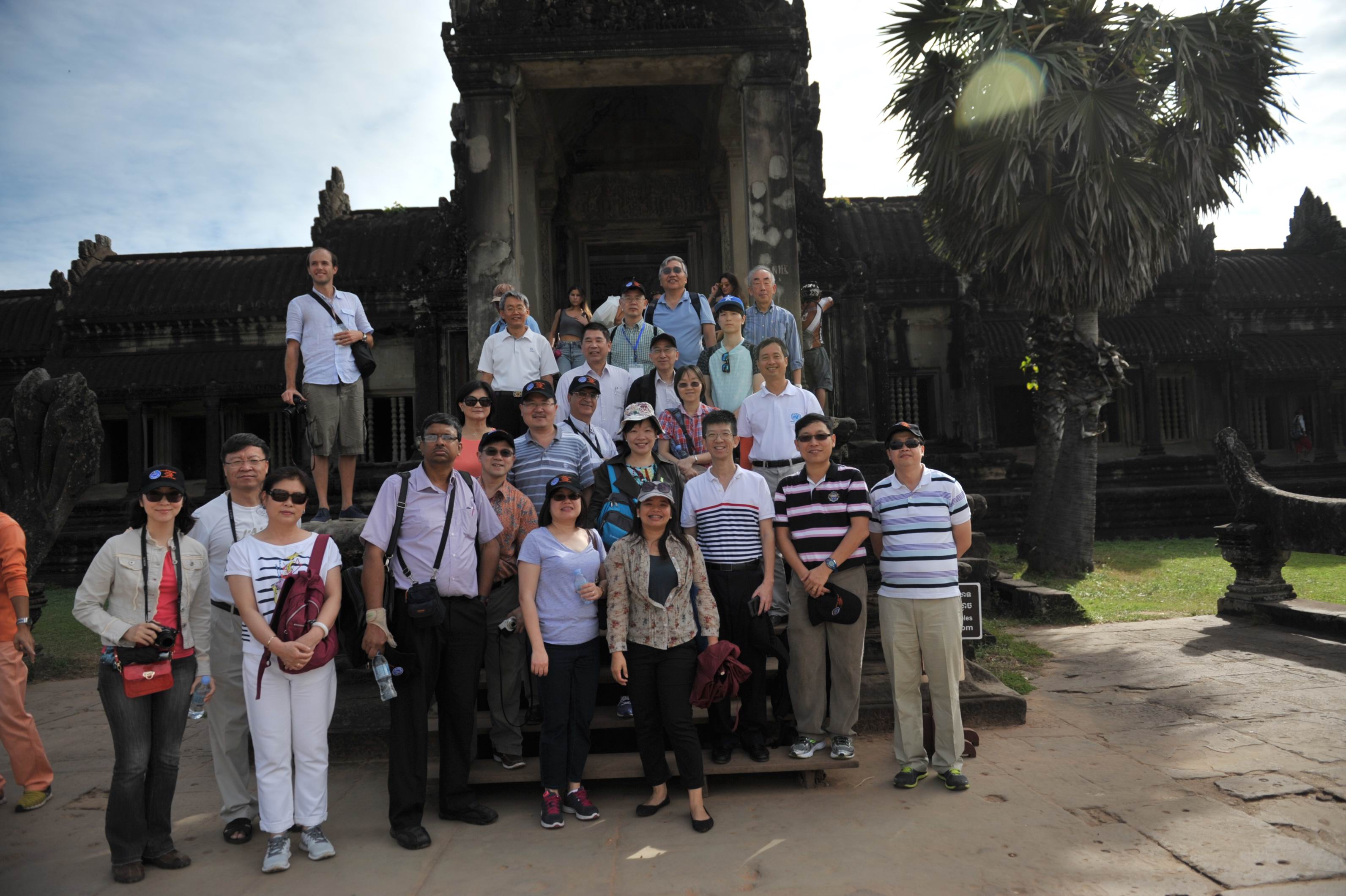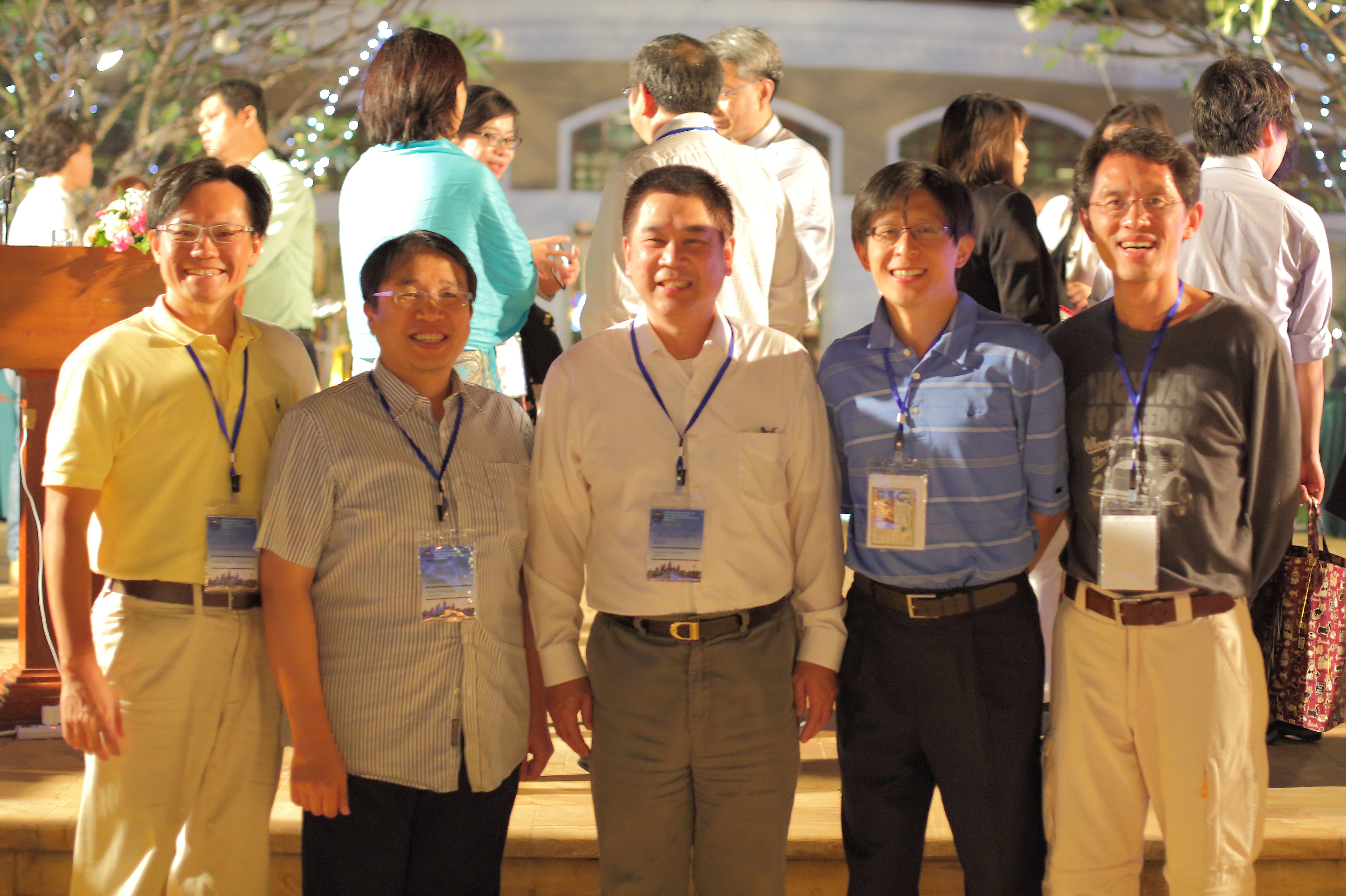Congratulations to three MCL PhD students for passing their defense
Congratulations to Harshad Kadu, Joe Yuchieh Lin and Xiang Fu, who passed their defense last week! Following are their thesis abstracts and they also shared their PhD experiences.
Thesis: Advanced Techniques for Human Action Classification and Text Localization (Harshad Kadu)
The thesis contains two main research topics:
1) Automatic human action classification with mocap data
We propose a TSVQ based multi-resolution string representation scheme that transforms the time-series of human poses into codeword sequences. Temporal and spatial features extracted from these sequences are combined together using novel fusion methods to achieve superior performance.
2) Text localization in natural scene images
Stable extremal region operator detects regions of interest in the proposed multi-stage incremental region classification framework. Geometric filtering, context-based text grouping and ensemble classifier stages, remove false positives and group related text regions into words.
Thesis: Experimental Design and Evaluation Methodology for Human-Centric Visual Quality Assessment (Joe Yuchieh Lin)
The problem of human-centric visual quality assessment (VQA) is extensively studied in this thesis. Our study includes three major topics: 1) design of a dataset for streaming video quality assessment, 2) development of a new and effective video quality assessment index, 3) exploration of a new methodology for human visual quality assessment based on the notion of just-noticeable-differences (JND).
Thesis: Advanced Visual Segmentation Techniques: Algorithm Design and Performance Analysis (Xiang Fu)
Two research topics are covered in the dissertation:
1) How to interactively represent and segment the object(s) in a video?
An interactive video object segmentation framework is proposed to handle complex and diverse scenes with large motion and occlusions, which outperforms the state-of-the-art Adobe After Effect.
2) How to reliably generate automatic image segmentation?
Region-Dependent Spectral Graph is designed to fuse contour, surface, and depth cues according to the type of regions. Depth cue can further merge the regions in the textured area, which is never applied for segmentation before.
Contour-guided Color [...]



